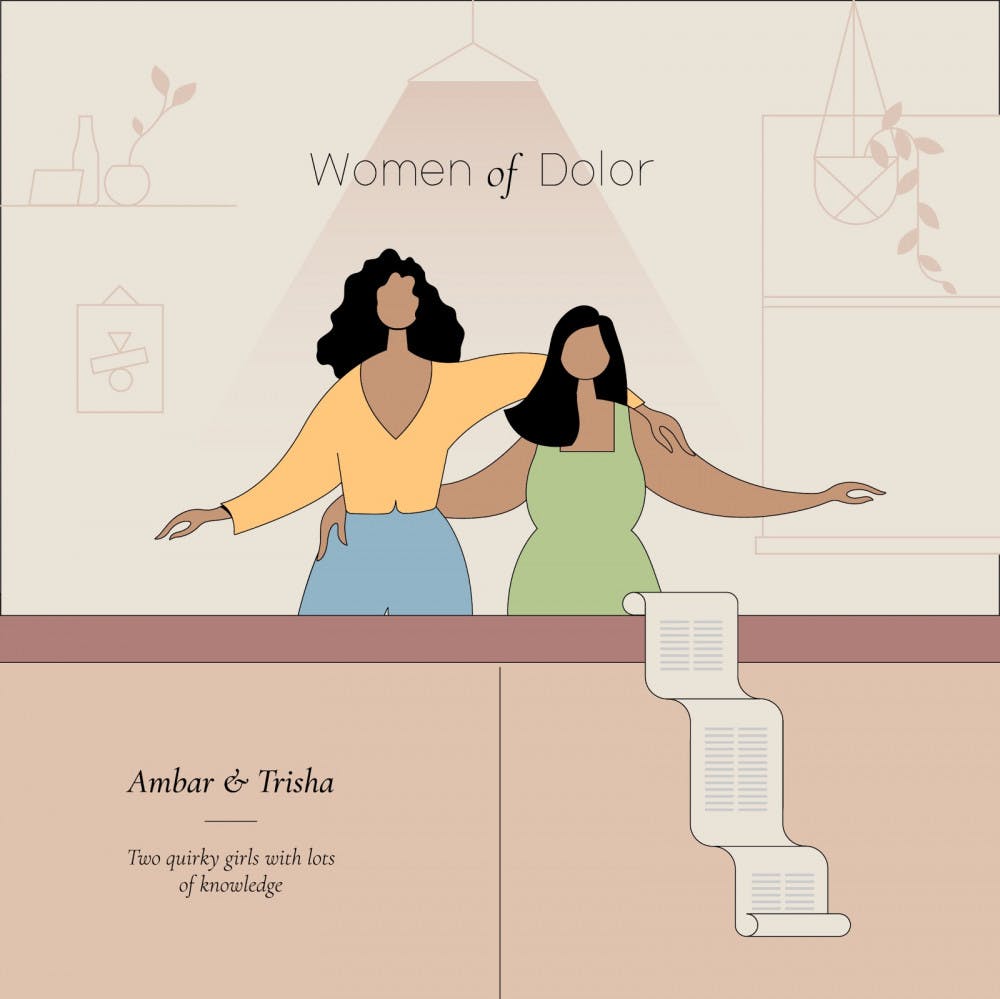By Alexandra Bonano
Staff Writer
In a time when conversation about women’s rights and minority groups is more pertinent than ever, many are sharing their voices with the world. Trisha Basak and Ambar Grullón, two students from the College, have teamed up to create a podcast titled “Women of Dolor,” which explores their experiences in American society through the eyes of intersectional minorities.
“It was mostly a joke when we started it … but then we thought about it and we were like, ‘There’s no reason why we can’t be a duo just because of quarantine,’” Basak said. Realizing this could become more than just a form of entertainment, Basak and Grullón took full advantage of their endeavor and decided to focus on socio-political topics from the perspective of two women of color.
The duo started their podcast on June 24, and the first season compiles 12 episodes, spanning themes of race, problematic pop culture, outdated ideology, unattainable expectations, trauma, oppression and activism.
Although their journeys started at different times, college was a pivotal point for both Grullón and Basak. For Basak, who is in her fifth year of the five-year graduate program, but graduated last year as an English and secondary education dual major, college allowed her to become acquainted with ideologies other than those she had been familiar with from a young age.
For Grullón, a senior English major, entering the College’s predominantly white campus was not easy at first.
“I entered college as incredibly shy and also very aware that I was, for the first time, one of the few people of color in a very white classroom,” she said. “Finding friends like Trisha and Laura, who is our sound designer, made me feel like I could make a home here, and so if I didn’t find them I don’t know how secure I would feel in my own cultural identity in a very white space.”

Grullón said their podcast is a way of creating their own space online, and making sure that it’s inclusive toward everyone.
Basak and Grullón agree that their best work has come from their more vulnerable and self-aware moments on the podcast, specifically episode six, “Are We All Manic Pixie Dream Girls?” which they believe marks when they truly found their rhythm. The episode exposed their personal experiences with the following tropes: Male Gaze, Cool Girls, Mean Girls and the Manic Pixie Dream Girls of the media. Helping to shed light on the experiences of listeners is what validates that they’re doing the best that they can do, Basak said.
In their season finale, “The People of Dolor,” the hosts had 11 other students from the College join them to create a community forum in which Basak and Grullón acted as moderators for the flow of discussion.
Guests spoke freely about themes seen throughout the season, like colorism as well as their own experiences as people of color.
“I think they’re talking about some really important themes about what it means to be a woman of dolor and a person of dolor,” said Tyler Watkins, a senior communications major at the College and one of the guest speakers on their finale episode.
Both Grullón and Basak confirmed that a second season is in the works, but they’re still deciding what it will look like. As the pandemic is still very much relevant, it’s harder to know which topics are as applicable today as those they’ve covered before.
For Basak, feeling less connected to the world through isolation over the last few months has made this a challenge to figure out, but nonetheless, the duo is committed to assessing what is happening to bring the best content to their listeners.
During the hiatus between seasons one and two, the duo has planned “Girl Talk” episodes where listeners can continue to get a taste of their insights, knowledge and conversations.
“I hope at the very least that our white listeners take time to learn about people and actually feel inspired to keep doing research on their own,” said Grullón. “And I hope that the BIPOC people who listen to it can find some comradery.”







